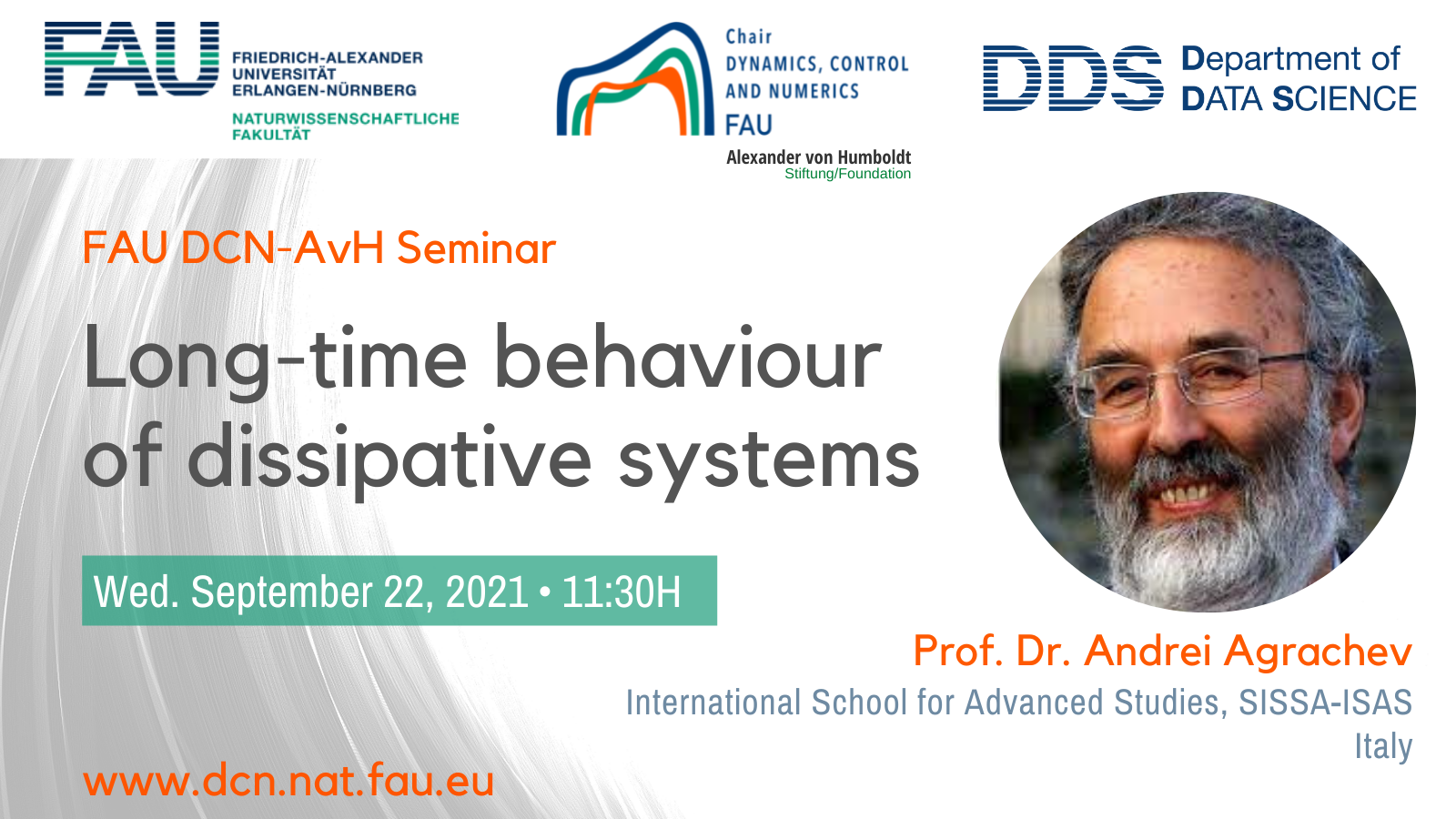
Long-time behaviour of dissipative systems
Speaker: Prof. Dr. Andrei Agrachev
Affiliation: International School for Advanced Studies, SISSA-ISAS (Italy)
Organized by: FAU DCN-AvH, Chair for Dynamics, Control and Numerics – Alexander von Humboldt Professorship at FAU Erlangen-Nürnberg (Germany)
Zoom meeting link (TBA 30mins before)
Meeting ID: 611 4799 1222 | PIN code: 516113
Abstract. Energy dissipation is always a “smoothing” and “stabilising” factor for the dynamics. In the case of a mechanical system with isotropic friction, the influence of the dissipation on the dynamics is controlled by an easily computable curvature tensor of the system. If the dissipation is strong enough then the curvature is negative and the system of second order differential equations is eventually reduced to the system of first order ones with a prescribed limiting velocity profile. I am going to explain this phenomenon that certainly has a more general nature, beyond the studied framework. If time permits, I’ll also discuss the transition to a weak dissipation and suggest a way to define a limiting velocity distribution in this case.
